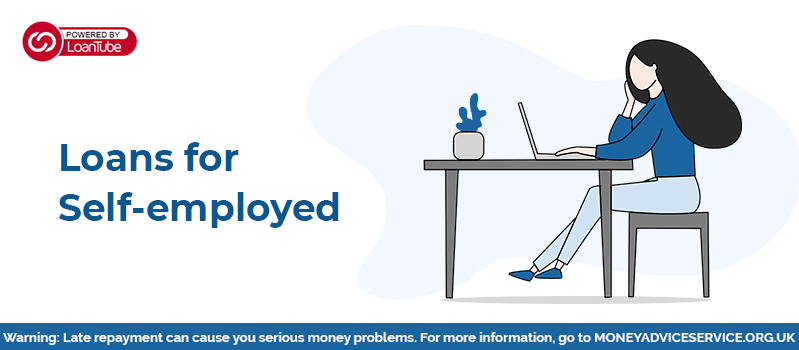Ever since the Financial Crisis of 2008, banks, lenders, and financial institutions have redesigned their lending policies, especially for self-employed individuals. People who have a regular source of income, or we can say, salaried people, find it easy to access loans as compared to self-employed individuals. That is because the monthly income of self-employed individuals may vary month on month. So, there is a risk of failure of repayment of the loan. Although there are not plenty of options available for the self-employed, there are limited options that you can use.
Do lenders in the UK offer personal loans to self-employed people?
The lending criteria vary from lender to lender. There may be lenders who offer loans to self-employed people. You need to have an excellent credit score and you should have all the necessary documents to prove your creditworthiness and affordability to the lender.
Suppose your only source of income is by renting out your place. You should have the bank statements highlighting the rent that you receive every month as your income.
What loans are available for the self-employed?
According to the Office for National Statistics, by the 4th quarter of December 2019, there were more than 5 million self-employed people in the UK. As a self-employed person, you can mainly apply for 4 types of loans.
1. Self-Employed Income Support Scheme (SEISS)
The government has been designing multiple schemes to support the households during this pandemic. SEISS is made up of a series of grants to help business owners or self-employed individuals. The first grant that was paid provided 80% of 3 months average trading profits over the last 3 years. It was capped at £7,500. The second grant provided 70% of monthly trading profits.
Recently the scheme has been extended to cover November 2020 to April 2021. The capping of the grants will be lower as compared to the 1st two grants.
2. Personal Loans
Personal loans are unsecured loans and therefore, you do not need to provide any collateral for securing it. If you default on the repayments, the lender cannot repossess your property to recover the money you owe. For this reason, to be eligible for a personal loan, you need to have a stellar credit score.
3. Guarantor Loans
There are chances that you may not be eligible for a personal loan. And lenders may not be willing to give you a loan due to your employment status. You can use a guarantor loan in such cases. You can ask your friend, your family members to become a guarantor for your loan application. Their credit score will be taken into consideration as they will be co-signing the application with you.
If you fail to repay the loan, the lender has the legal right to contact your guarantor to pay back. Also, your guarantor has the financial and legal responsibility to repay the debt if you cannot keep up with the repayments.
4. Secured Loans
If you are finding it difficult to convince a lender to lend you money. Or you do not have sufficient documents to prove your income, loan affordability, and creditworthiness – you can use your asset to secure a loan. As the loan will be secured to your property, there is a risk to your home. If you fail to make the repayments, your property may be repossessed by the lender.
Therefore, borrow an amount that you can pay back without any trouble. Do not borrow a huge sum if you cannot make the repayments. Assess your financial situation and take into consideration your monthly income and outgoings.
Do I need to provide any documents for getting a loan if I am self-employed?
You need to provide a set of documents to the lender while applying for a loan if you are self-employed. Here is a possible list of the documents a lender may ask you to provide:
1. Proof of ID
You can use your driver’s license, current signed passport, original birth certificate, national identity card that has your photograph, benefit book, photographic registration cards for self-employed individuals in the construction industry.
2. Proof of address
Local authority council tax bill for the current year, utility bill issued within the last 3 months, original mortgage statement from a recognized lender issued for the last full year, HMRC self-assessment letters, electoral register entry – these can be used.
3. Proof of rental income
You may need to provide lease or tenancy documents, along with your bank and mortgage statements as proof of income.
4. Tax returns (SA302)
You should prepare your evidence of your earning (SA302). Log into your HMRC account and download your tax return calculation. Being a self-employed person, you are expected to file for tax return on your own.
Having a good credit score can help you find offers with a low-interest rate. If you have a bad credit score, and you are trying to secure an affordable deal – it will be challenging. You may get loans that have a high-interest rate as compared to standard personal loans. Also, the options that you may find will be limited. If your loan application is approved, you can use the money the way you want. There is no restriction on the way you can spend it. However, you cannot use the money for gambling, or to invest in the stock market, or purchase any bonds.
Review your credit report and check the lending criteria of the lender you are applying to. Prepare all your necessary documents to avoid the last-minute hustle. Calculate the amount that you need according to your repayment ability. Borrowing more than you can afford may lead you to a debt trap.

